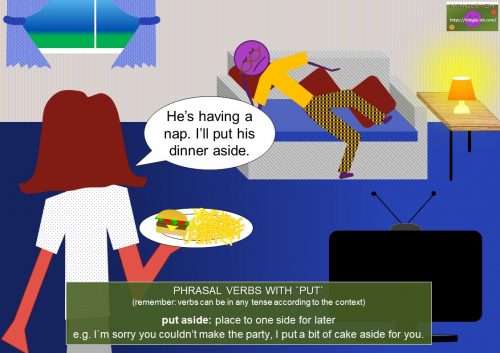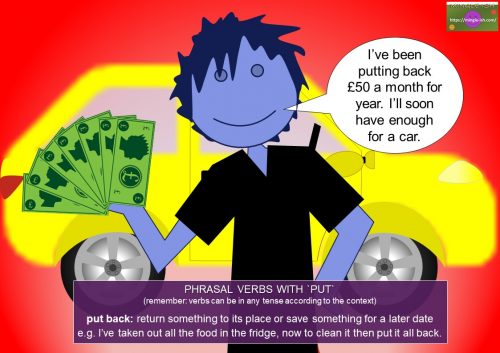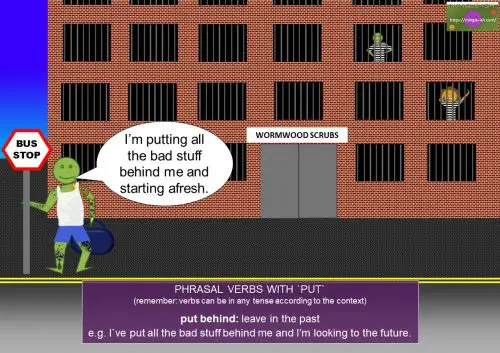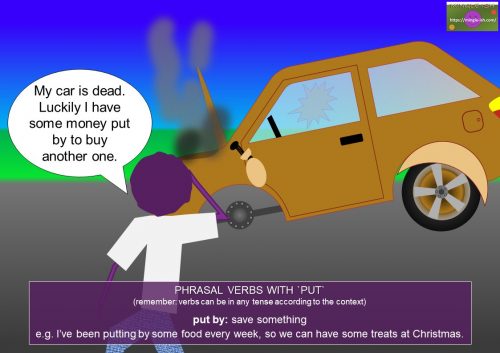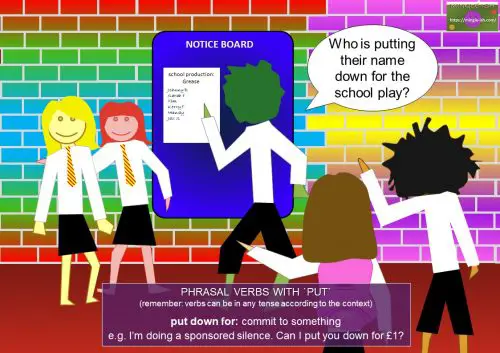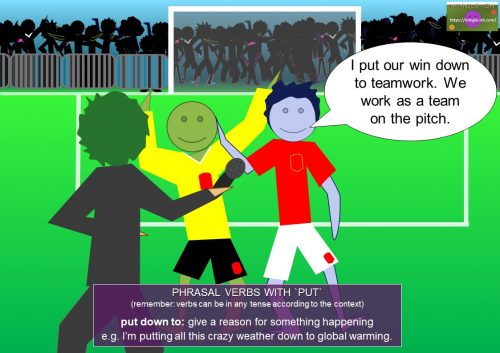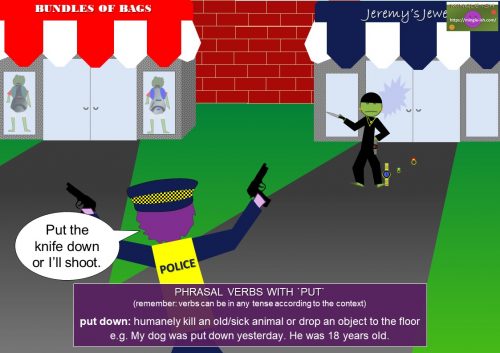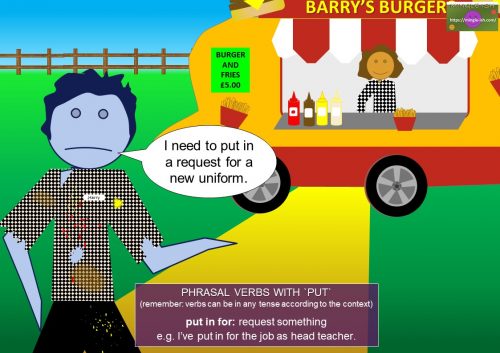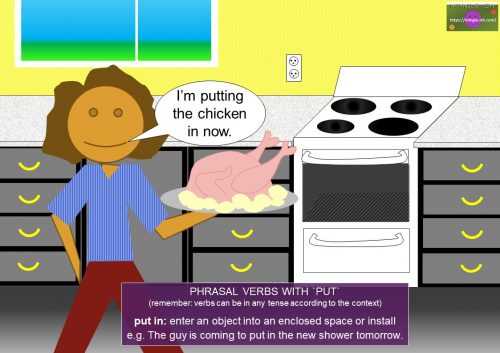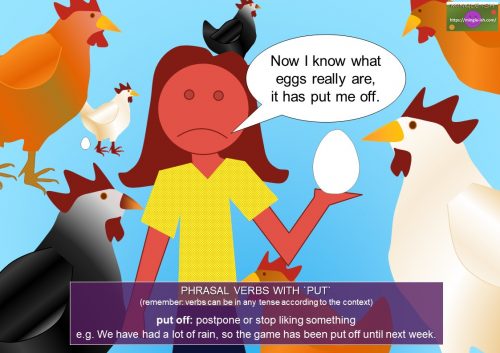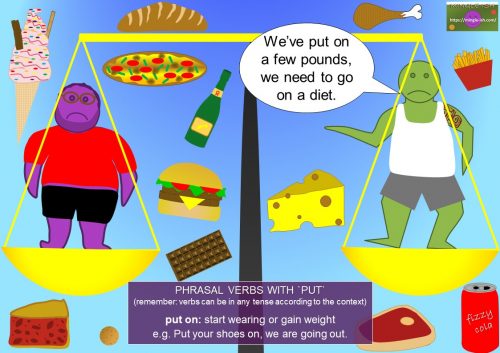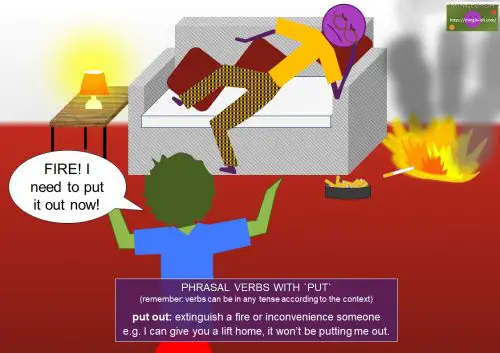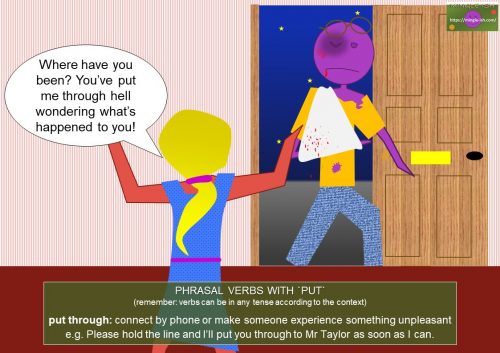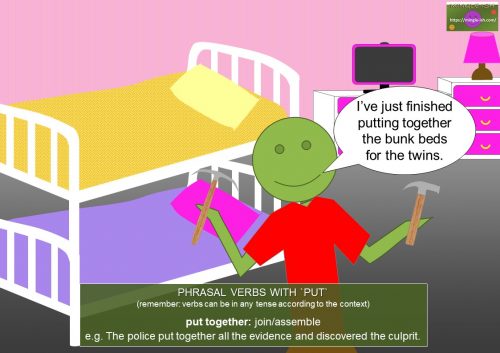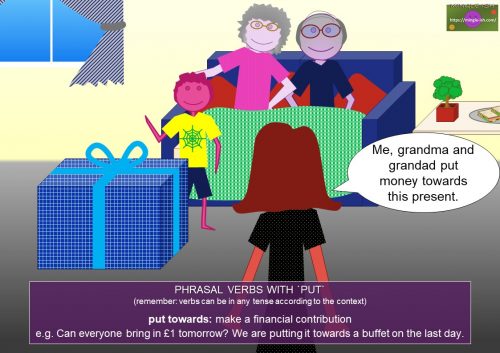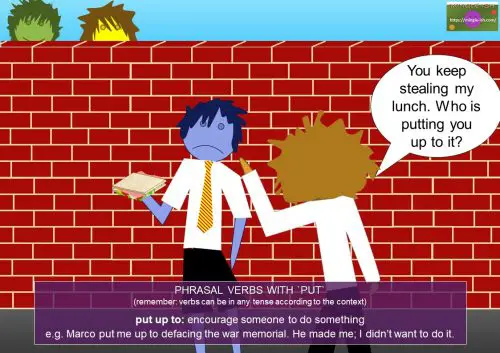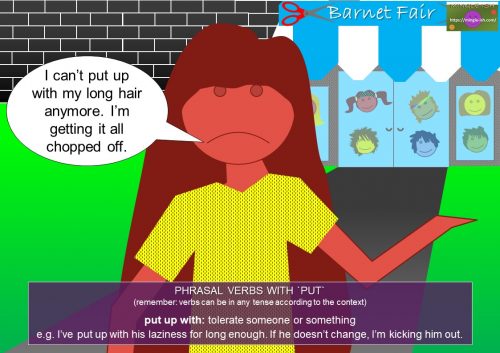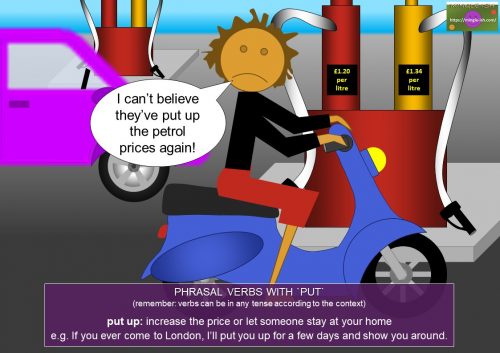The word ‘put‘ can mean many different things. As a verb, the meaning is to place an object or bring into a particular state.
For example:
- Put your hands up in the air. (place an object)
- He put me in a difficult situation. (bring into a particular state)
Put is an irregular verb. The past tense is put and the past participle is put.
phrasal verbs with put
Phrasal verbs with ‘put’ include:
- put across
meaning – convey your message
example – I put across my views over social media. - put aside
meaning – put to one side for later
example – I`m sorry you couldn’t make the party, I put a bit of cake aside for you. - put away
meaning – put something in its correct place or send someone to prison
example – Put away all of your pencils, I need to set the table for dinner. - put back
meaning – return something to its place or save something for a later date
example – I’ve taken out all the food in the fridge, now to clean it then put it all back. - put behind
meaning – leave in the past
example – I`ve put all the bad stuff behind me, now I’m looking to the future. - put by
meaning – save something
example – I’ve been putting by some food every week, so we can have some treats at Christmas. - put down
meaning – humanely kill an old/sick animal or drop an object to the floor
example – My dog was put down yesterday. He was 18 years old. - put down for
meaning – commit to something
example – I’m doing a sponsored silence. Can I put you down for £1? - put down to
meaning – give a reason for something happening
example – I’m putting all this crazy weather down to global warming. - put forward
meaning – suggest an idea or nominate someone
example – I’ll put Jenna forward for employee of the month. She is a hard worker - put in
meaning – enter an object into an enclosed space or install
example – The guy is coming to put in the new shower tomorrow. - put in for
meaning – request something
example – I’ve put in for the job as head teacher. - put off
meaning – postpone or stop liking something
example – We have had a lot of rain, so the game has been put off until next week. - put on
meaning – start wearing or gain weight
example – Put your shoes on, we are going out. - put out
meaning – extinguish a fire or inconvenience someone
example – I can give you a lift home, it won’t be putting me out. - put through
meaning – connect by phone or make someone experience something unpleasant
example – Please hold the line and I’ll put you through to Mr Taylor as soon as I can. - put together
meaning – join/assemble
example – The police put together all the evidence and discovered the culprit. - put towards
meaning – make a financial contribution
example – Can everyone bring in £1 tomorrow? We are putting it towards a buffet on the last day. - put up
meaning – increase the price or let someone stay at your home
example – If you ever come to London, I’ll put you up for a few days and show you around. - put up to
meaning – encourage someone to do something
example – Marco put me up to defacing the war memorial. He made me; I didn’t want to do it. - put up with
meaning – tolerate someone or something
example – I’ve put up with his laziness for long enough. If he doesn’t change, I’m kicking him out.
picture examples
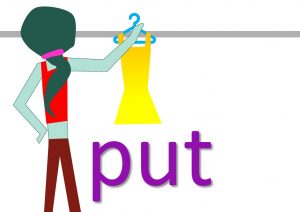
Let’s learn the meaning of the phrasal verbs that contain the verb ‘put’ in more detail and see some examples in use.
Did you know that many idiomatic expressions (idioms) in English also contain a lot of verbs? Just like phrasal verbs, idioms are a major part of the English language (slang in particular). They are used constantly amongst native English speakers and are handy to know and understand.
Now you’ve learnt all the phrasal verbs with put, how about learning the idioms with put too?

